Intel's Raptor Lake CPUs May Consume Up To 25% Less Power
An Intel patent (courtesy of Underfox) explains the concept of the Digital Linear Voltage Regulator (D-LVR) and the power-saving benefits that it can bring to the chipmaker's future processors, such as Raptor Lake.
As quick introduction, Raptor Lake will be the successor to Intel's current 12th Generation Alder Lake lineup that houses some of the best CPUs on the market. Intel has already confirmed that Raptor Lake is compatible with existing Intel 600-series motherboards, and thus, drops into the same LGA1700 socket. An alleged Intel roadmap claims that Raptor Lake may feature a new hybrid system to deliver better performance. But what really caught our eyes was the mention of a D-LVR power delivery system, which would likely help improve power efficiency. Thanks to Underfox's discovery, we now know exactly what D-LVR is about.
The patent, titled "Digital Linear Regulator Clamping Method and Apparatus," dates back to January 2020, which was when Intel filed it. However, the document recently came to light in July 2021. According to the abstract, D-LVR essentially serves as a voltage clamp that's situated in parallel to the primary VR (voltage regulator) - in our case, the motherboard VR. What this does is reduce the CPU VID and processor core power consumption. The implementation of D-LVR also aims to increase CPU performance. Intel believes that D-LVR is cheap to implement, and that the extra cost for the silicon itself and for the motherboard VR is very small.
Intel provided a couple of charts in the document to illustrate the level of energy efficiency that D-LVR can bring to the table. With the DLVR acting as a voltage clamp, there's a possibility to decrease the CPU voltage Vin by up to 160 mV. The chipmaker estimated a reduction in power consumption between 20% to 25%.
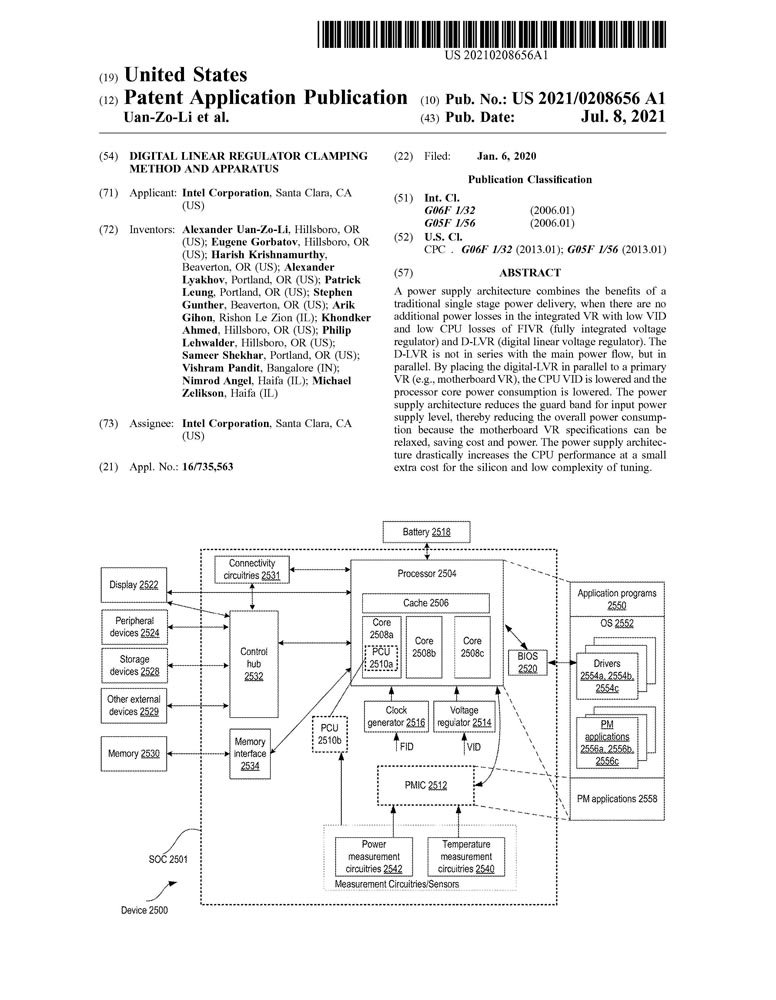
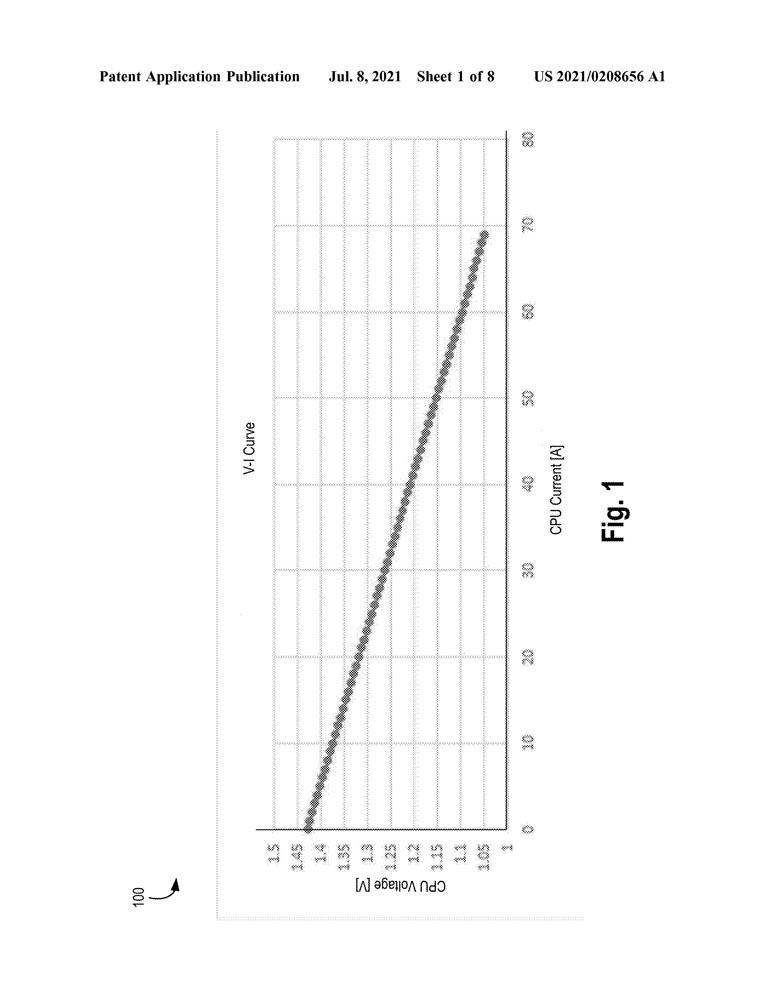
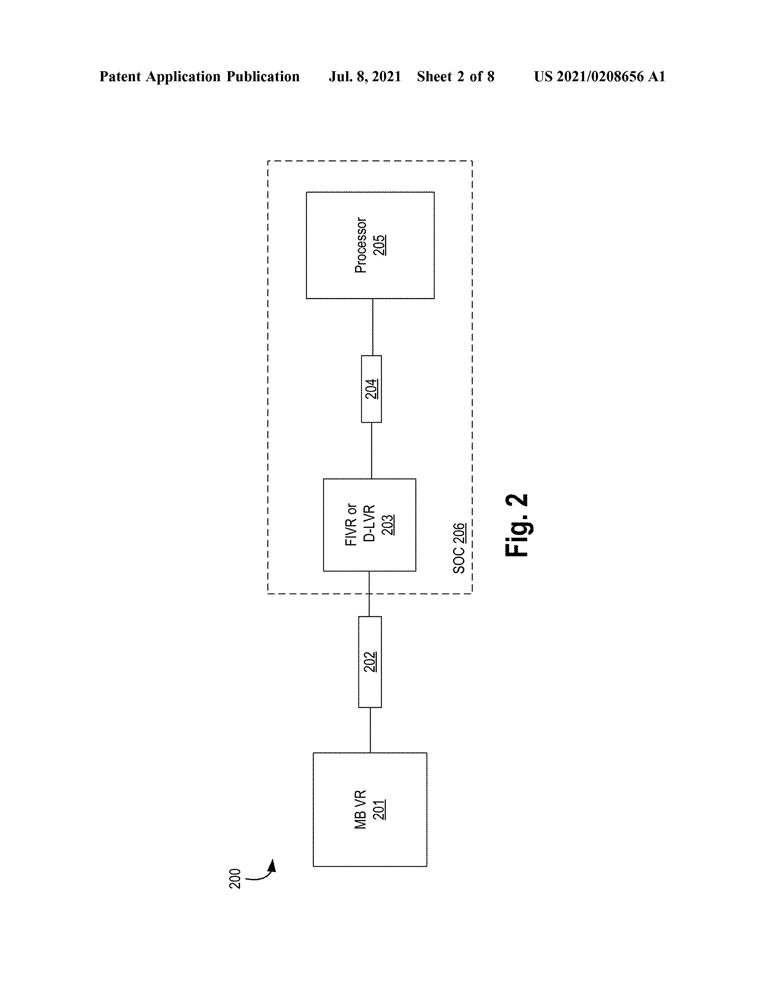
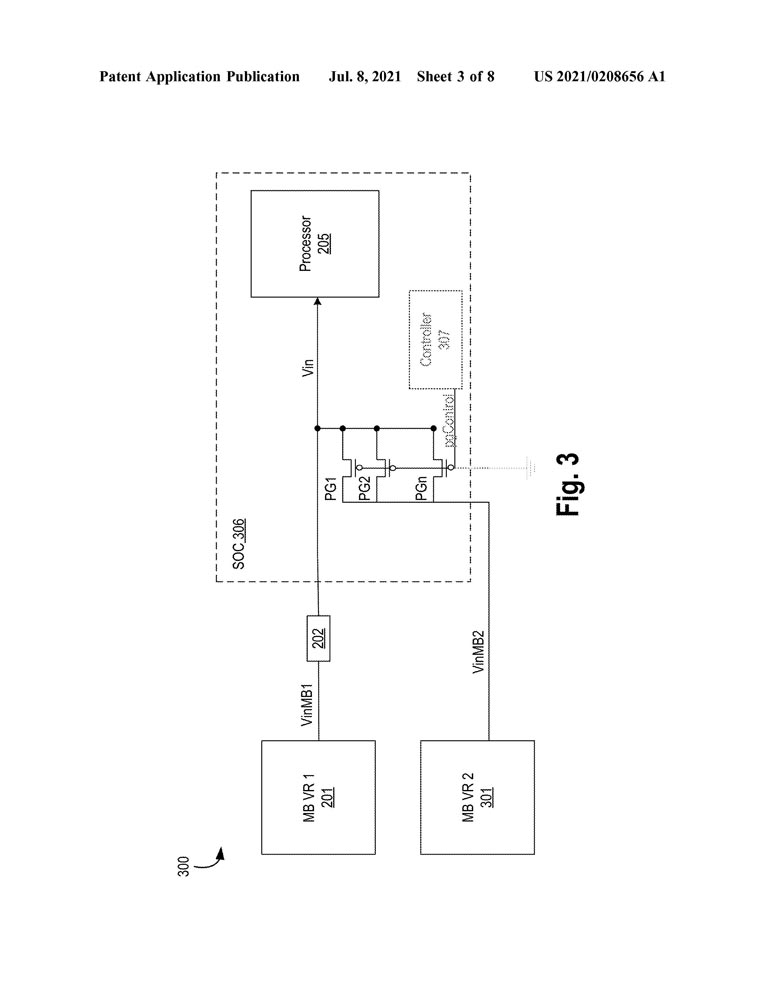
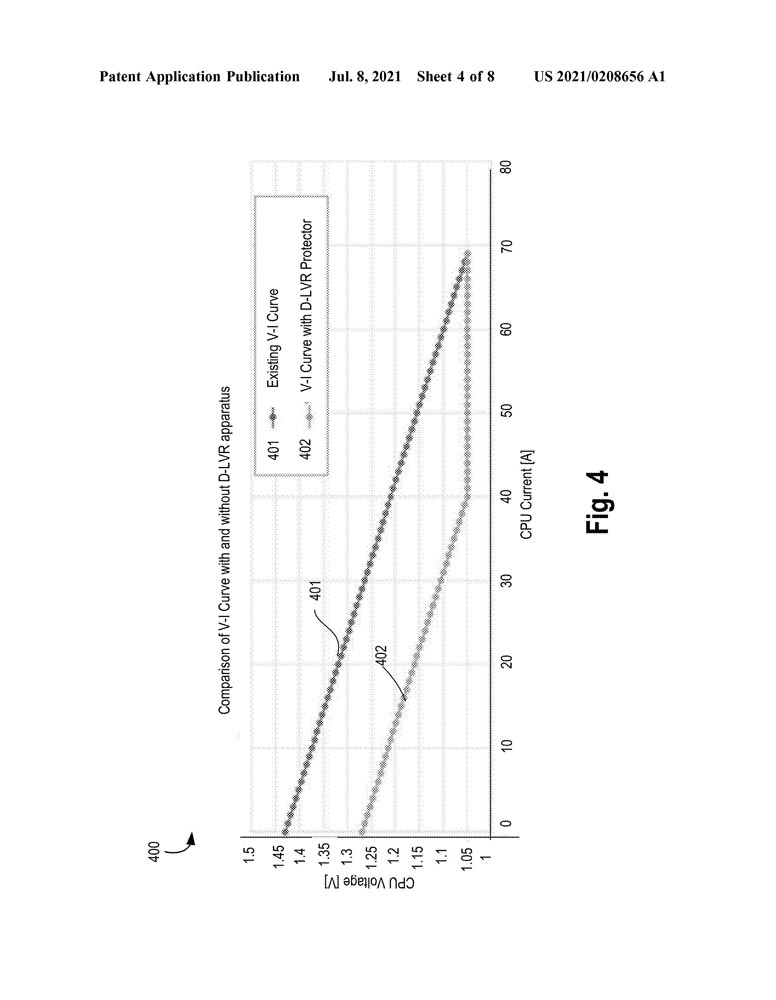
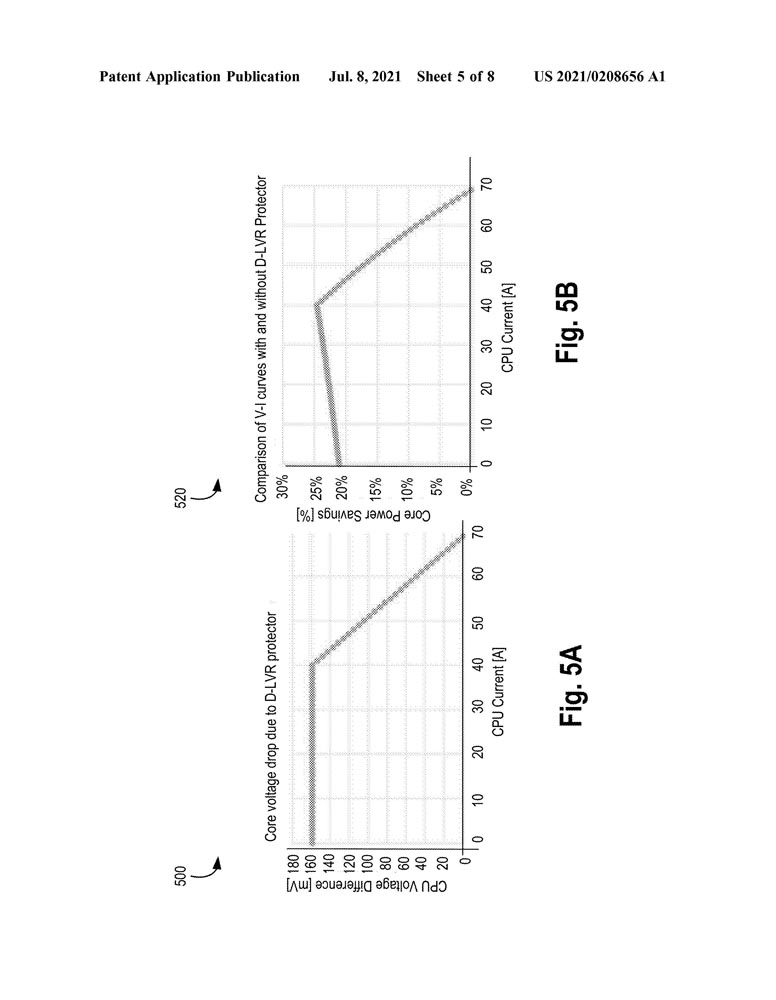
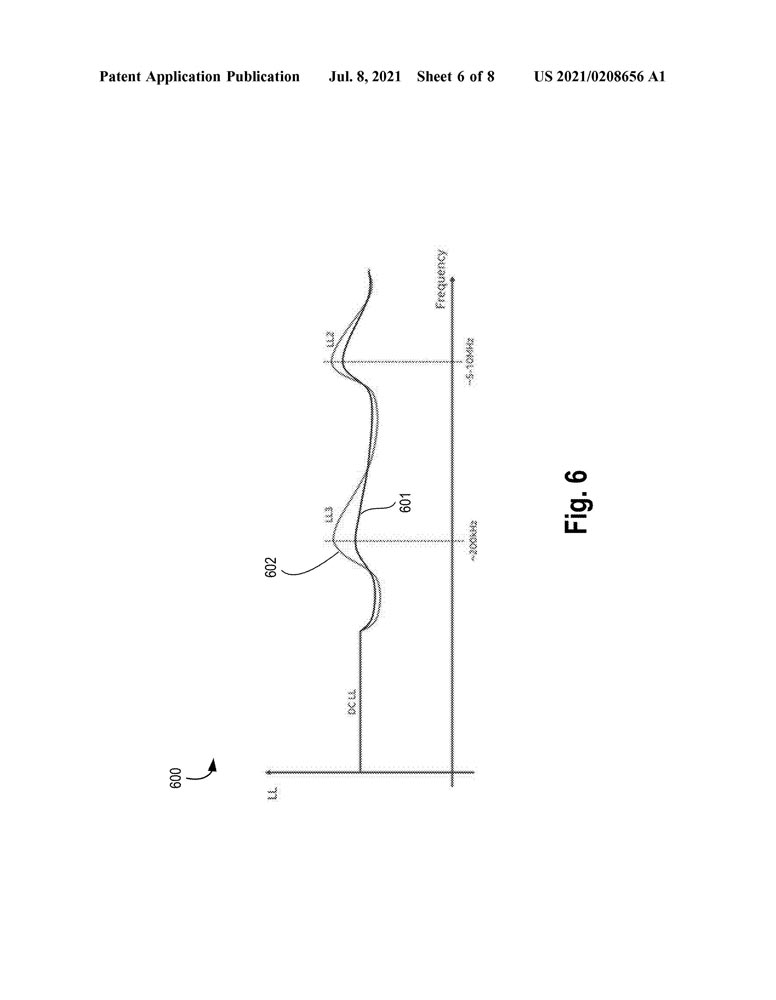
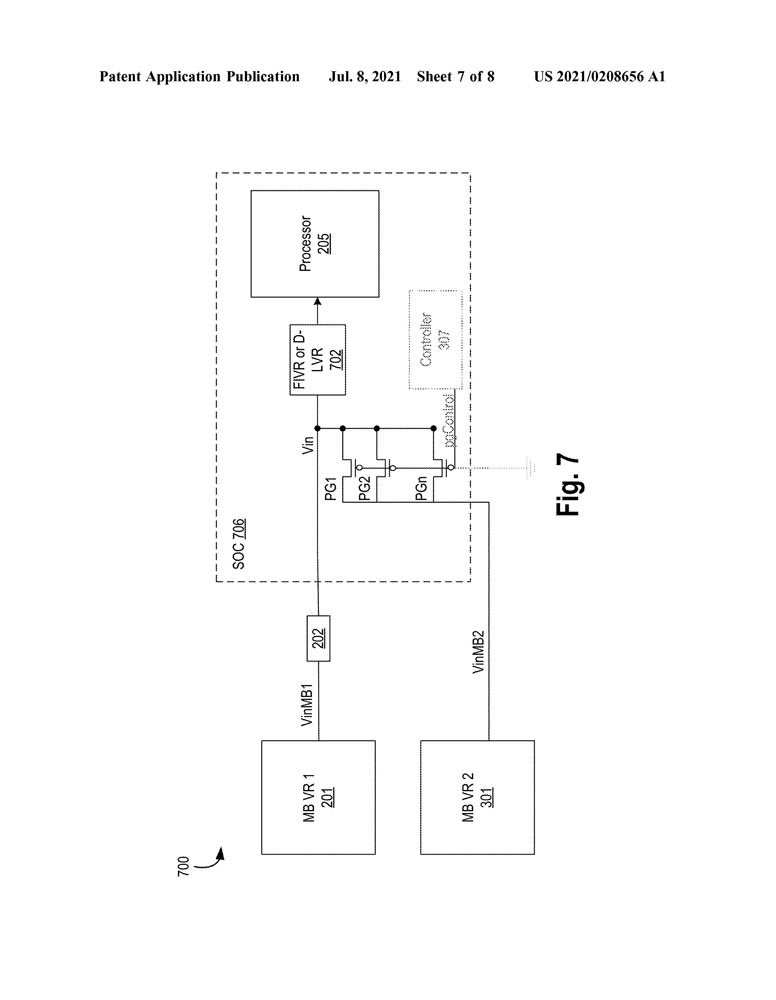
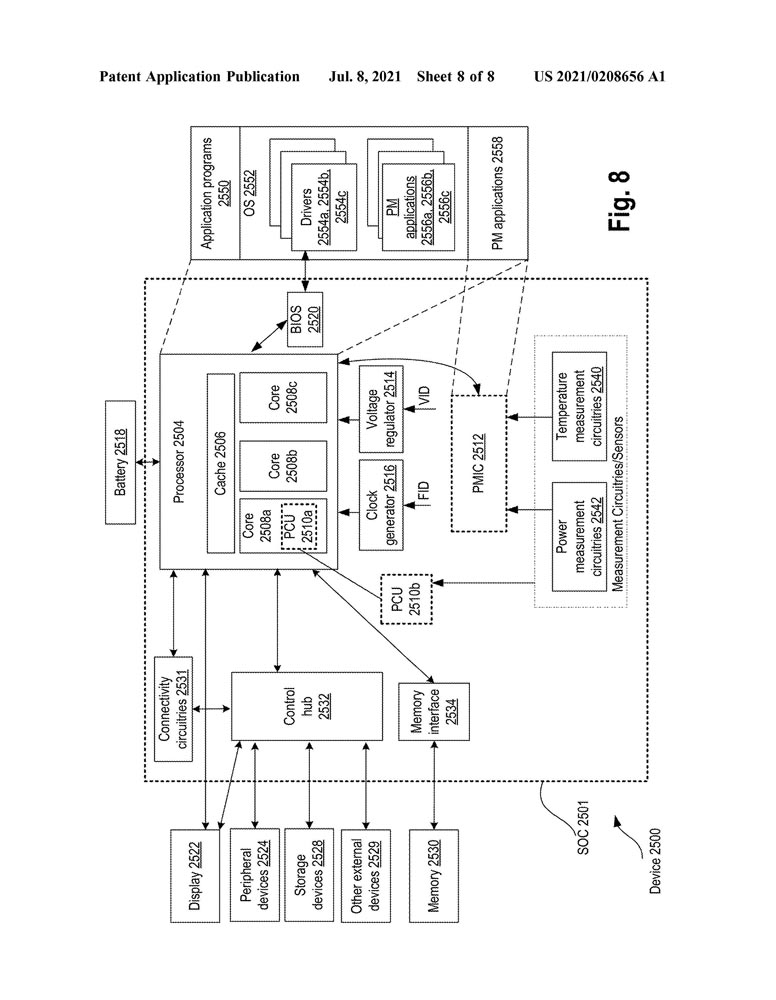
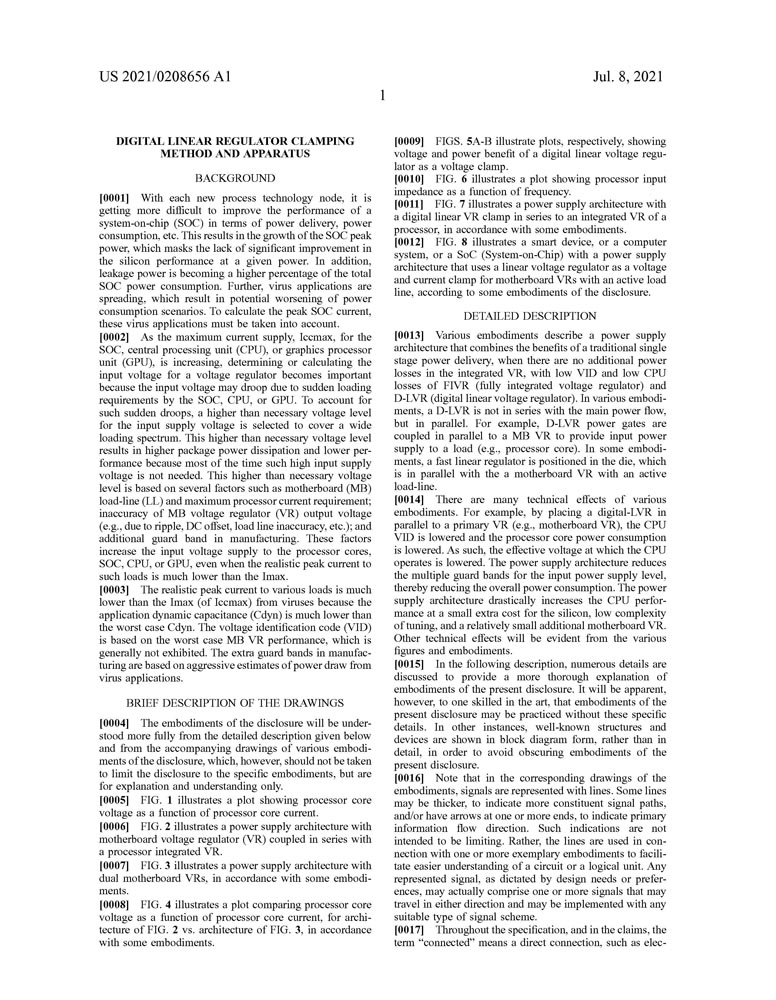
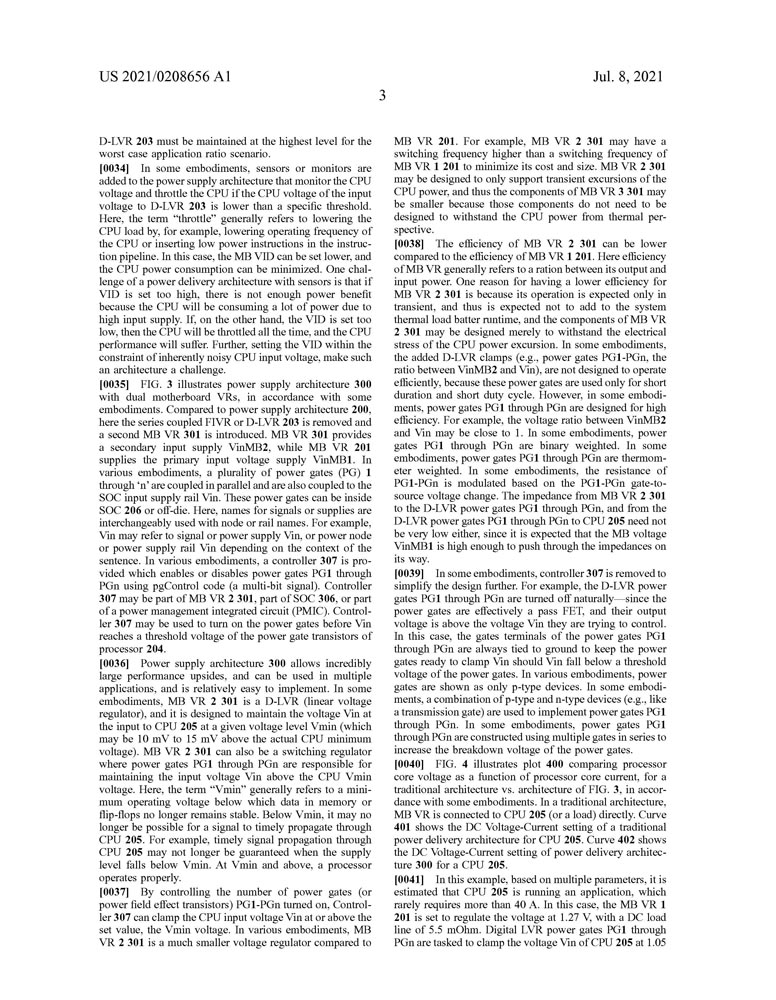
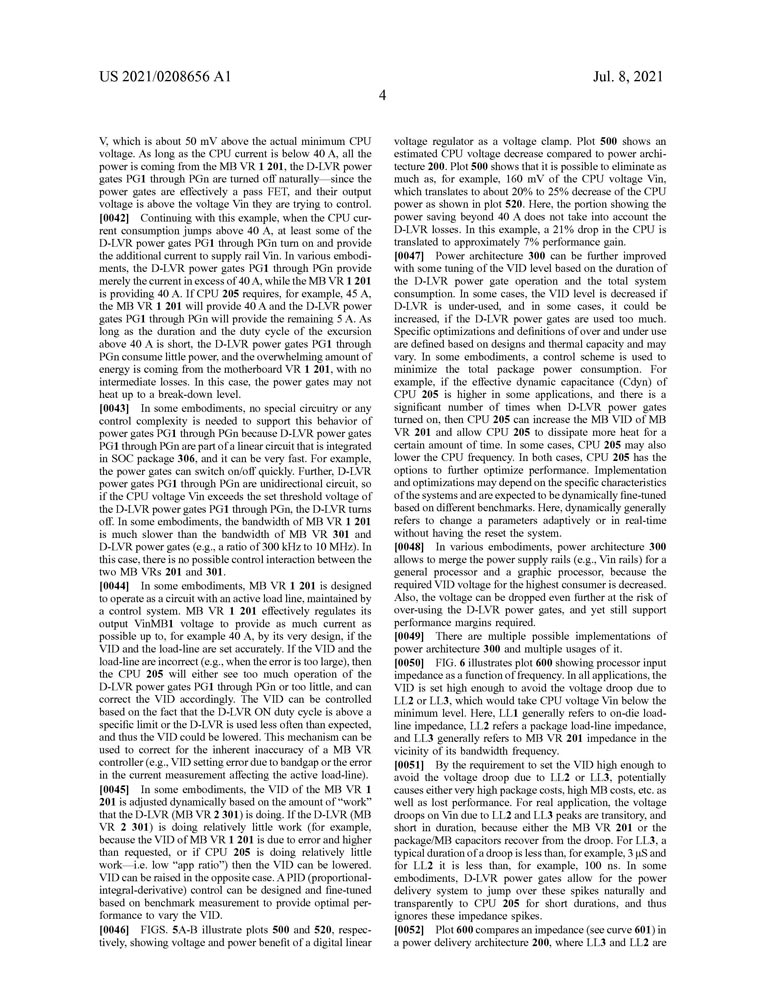






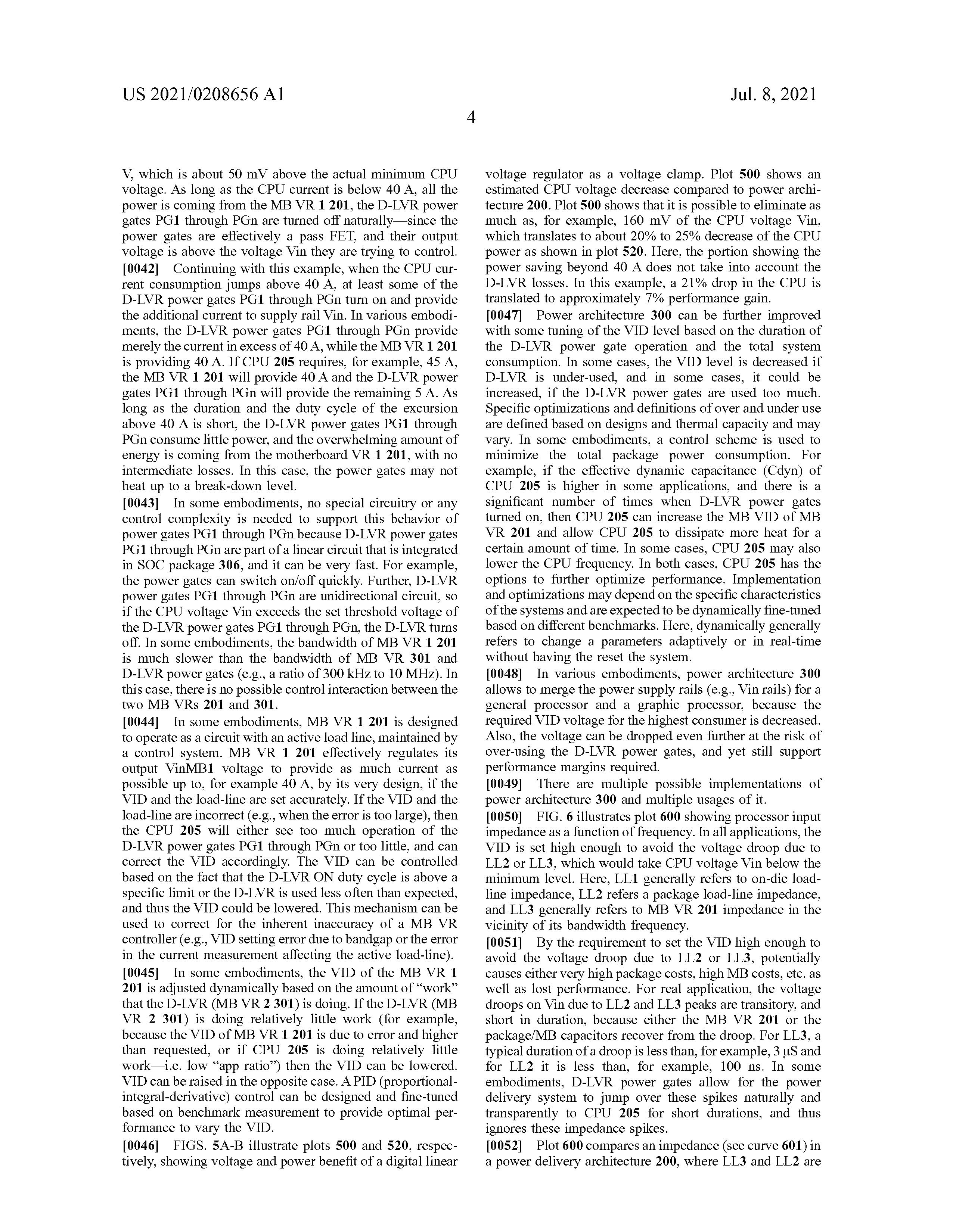
A processor. which is running a certain application, rarely demands more than 40A. The motherboard VR regulates the voltage at 1.27V, while the D-LVR power gates (PG1, PG2, PGn) clamp the CPU Vin at 1.05V, approximately 50 mV higher than the actual minimum CPU voltage. If the CPU current is below 40A, the D-LVR power gates remained off.
Once the CPU current consumption exceeds 40A, some of the D-LVR power gates activate to supply the additional current to the Vin. For example, at 45A, the motherboard VR sends 40A, while the D-LVR power gates administers the extra 5A. The D-LVR power gates consume very little energy, assuming that the duration and duty cycle above 40A is short. With Intel's example, we can expect a 21% decrease in CPU power, which translates to roughly to a 7% performance uplift.
Intel has finally managed to beat AMD's Zen 3 army with Alder Lake. However, speed is one thing and power efficiency is another. Despite Alder Lake being faster, Zen 3-based Ryzen chips are still more power-efficient. Perhaps, Raptor Lake could build on Alder Lake's strong suit, while also improving its weak points.
Get Tom's Hardware's best news and in-depth reviews, straight to your inbox.
Raptor Lake may arrive in 2022. The leaked slide only showed the mobile variants with the D-LVR implementation, though. Other rumored features on the mobile chips that we can look forward to include LPDDR5X support, while the desktop variants should arrive with an improve CPU cache system for gaming and a new Intel vPro featureset.

Zhiye Liu is a news editor, memory reviewer, and SSD tester at Tom’s Hardware. Although he loves everything that’s hardware, he has a soft spot for CPUs, GPUs, and RAM.
-
peachpuff I seriously doubt intel wants to save any power, they'll just over clock it higher and use up any power they saved.Reply -
gargoylenest can we wait until they have some benchmarking before making supposed assumption? especially in the case of Intel, it would not be the first time they "embellish" some facts.Reply -
hotaru251 doesnt help at full tilt when itenls use 2x as much as amd's.Reply
25% less is still a ton. -
ottonis I guess that Intel will tailor the 13xxx CPUs to different power needs: from the most demanding, power hungry, 13900k variant that will certainly change all it's power savings for higher clock rates and/or longer durations of PL2 states, to an i5 or i3 variant tuned for power efficiency, at the cost of highest turbo frequencies.Reply
If the rumor mill is to be believed, Raptor Lake will be built on an improved Intel-7 process (some sort of 10+++ nm process), while Zen4 is supposed to be on TSMC's 5 nm process. That's of interest as Zen 4 will supposedly come out late 2022, as is Raptor Lake. These two will compete with each other directly, so Intel's power savings through its voltage regulator may become partially offset by a 5nm process node that will improve power efficiency in Zen4 by at least 20%. Moreover, AMD is certainly not sitting and doing nothing beyond transitioning to 5nm. Instead, they will most certainly have found some architectural changes that would improve power savings even further. -
PapaCrazy Replyhotaru251 said:doesnt help at full tilt when itenls use 2x as much as amd's.
25% less is still a ton.
Also kind of funny they are trying to tackle their power problem through VRM instead of through silicon efficiency. -
TerryLaze If you run both at suggested TDP, meaning 125w for intel and ppt of 142w for ryzen, the 12900k uses less power than the 5900x but more than the 5950x ,it has lower temps than both the 5900x and the 5950x because the big die helps a lot in transferring the heat to the cooler (less heat per surface) ,and in both efficiency as well as performance it is right in-between the 5900x and the 5950x.Reply
Being able to use twice the power to beat the 5950x in a big part of benches WITHOUT EVEN OVERCLOCKING is just the cherry on top.
If intel can reduce this 125w tdp to 100w it would be massive for intel.
https://www.hardwareluxx.de/index.php/artikel/hardware/prozessoren/57430-core-i9-12900k-und-core-i5-12600k-hybrid-desktop-cpus-alder-lake-im-test.html?start=8 -
Soaptrail The Gods are smiling upon us, two iterations of Intel processors on the same chipset!Reply